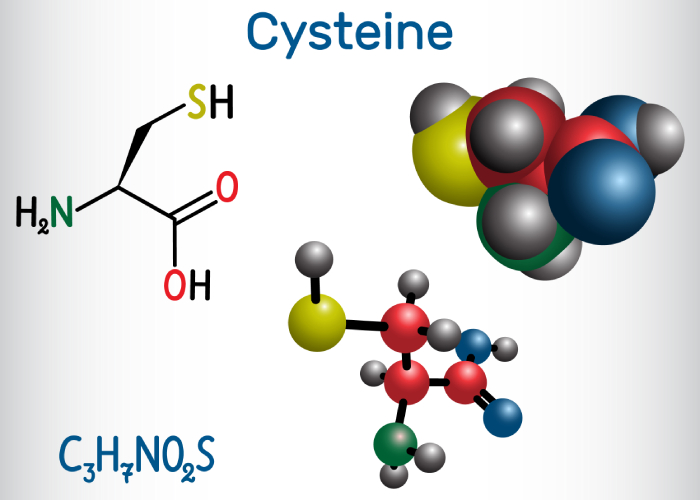New Study Reveals Promising Results for African Americans with Vitamin D Deficiency
A groundbreaking study published in BMJ Nutrition, Prevention and Health suggests that combining vitamin D with L-cysteine could be more effective at increasing bioavailable vitamin D and reducing inflammation compared to vitamin D supplementation alone. This randomized control trial (RCT) involved 165 vitamin D-deficient African Americans and revealed significant reductions in inflammatory markers such as neutrophil-to-lymphocyte ratio (NLR) and C-reactive protein (CRP) in the combination group.
Researchers from Louisiana State University also observed that the vitamin D and L-cysteine combination was more effective at reducing insulin resistance, as measured by the homeostatic model assessment (HOMA-IR), than vitamin D alone. The study’s authors concluded that co-supplementation of vitamin D and L-cysteine could be a superior approach for increasing total 25(OH)VD levels in men and bioavailable 25(OH)VD in both sexes while simultaneously reducing inflammation among African Americans.
Vitamin D’s importance extends beyond bone health, influencing various essential physiological functions. Previous research has linked vitamin D deficiency to a higher incidence of chronic diseases, including diabetes and heart disease. However, randomized controlled trials have shown limited success with vitamin D supplementation alone.

L-cysteine, an antioxidant, has been reported to lower inflammation biomarkers and upregulate vitamin D-regulating genes. This led the researchers to investigate whether co-supplementation with vitamin D and L-cysteine could provide greater benefits than vitamin D alone, particularly in African Americans, who have a higher incidence of vitamin D deficiency (70%) compared to the white population (25%).
The study included 165 African Americans aged 18 to 65 years, randomized into four groups: placebo, L-cysteine (1,000 mg/day), vitamin D (2,000 IU/day), and a combination of both at the same doses. Participants were instructed to take their oral supplement(s) daily for six months. Blood samples were collected at baseline and after the treatment period to measure total, free, and bioavailable 25(OH)D.
Results showed that participants receiving the combination experienced a significant two-fold increase in bioavailable 25(OH)D compared to those taking vitamin D alone. While there was a significant difference in total 25(OH)D levels after supplementation with vitamin D alone, this difference was only observed in men. The researchers suggest that higher testosterone levels in men may upregulate vitamin D metabolism genes, leading to increased total vitamin D levels.
The combination group also experienced significant reductions in key inflammatory markers compared to the vitamin D only group, indicating a superior anti-inflammatory effect. Additionally, the combination was associated with changes in free/total testosterone and sex hormone-binding globulin (SHBG) levels. SHBG transports testosterone and estradiol to target tissues and regulates their free concentrations. Increased SHBG levels can upregulate insulin signaling pathways, improve glucose metabolism, and contribute to decreases in HbA1c, CRP, and NLR.
The researchers concluded that further clinical trials are needed to investigate whether L-cysteine co-supplementation with vitamin D could be used to successfully treat vitamin D deficiency.
Commentary by SuppBase columnist Alice Winters:

This intriguing study on the synergistic effects of vitamin D and L-cysteine co-supplementation opens up new avenues for addressing vitamin D deficiency and its associated health risks, particularly in African American populations. The research’s focus on bioavailable vitamin D, rather than just total levels, is a crucial step forward in understanding the nuanced effects of supplementation.
The study’s findings regarding the combination’s superior anti-inflammatory effects and potential improvements in insulin sensitivity are particularly noteworthy. These outcomes could have far-reaching implications for managing chronic diseases associated with vitamin D deficiency, such as diabetes and cardiovascular disorders.
However, it’s essential to approach these results with measured optimism. While the study shows promise, its relatively small sample size and focus on a specific demographic limit its generalizability. Further large-scale studies across diverse populations are necessary to confirm these findings and explore potential variations in efficacy among different ethnic groups.
The observed gender differences in total 25(OH)D levels highlight the complex interplay between sex hormones and vitamin D metabolism. This underscores the need for personalized approaches to supplementation, taking into account factors such as gender, hormonal status, and individual metabolic profiles.
From a formulation perspective, the combination of vitamin D and L-cysteine presents an interesting challenge for supplement manufacturers. Ensuring stability, bioavailability, and palatability of this combination in a single product could be a significant hurdle to overcome.
It’s also worth noting that while the study used specific dosages (2,000 IU/day of vitamin D and 1,000 mg/day of L-cysteine), optimal dosages for different individuals may vary. Future research should explore dose-response relationships and potential long-term effects of this co-supplementation strategy.
The potential impact on SHBG levels and subsequent effects on hormone balance and metabolism add another layer of complexity to this supplementation approach. This could open up new research directions in hormone-related disorders and metabolic health.
From a market perspective, if these results are corroborated by further studies, we could see a shift towards combination products in the vitamin D supplement space. This could potentially disrupt the current market dominated by standalone vitamin D supplements.
In conclusion, while this study presents exciting possibilities for enhancing vitamin D supplementation strategies, it’s crucial to remember that supplements should not be viewed as a panacea. A holistic approach to health, including a balanced diet, regular exercise, and adequate sun exposure (where possible), remains paramount. As always, individuals should consult with healthcare professionals before starting any new supplementation regimen, especially those with pre-existing health conditions or those taking medications.



